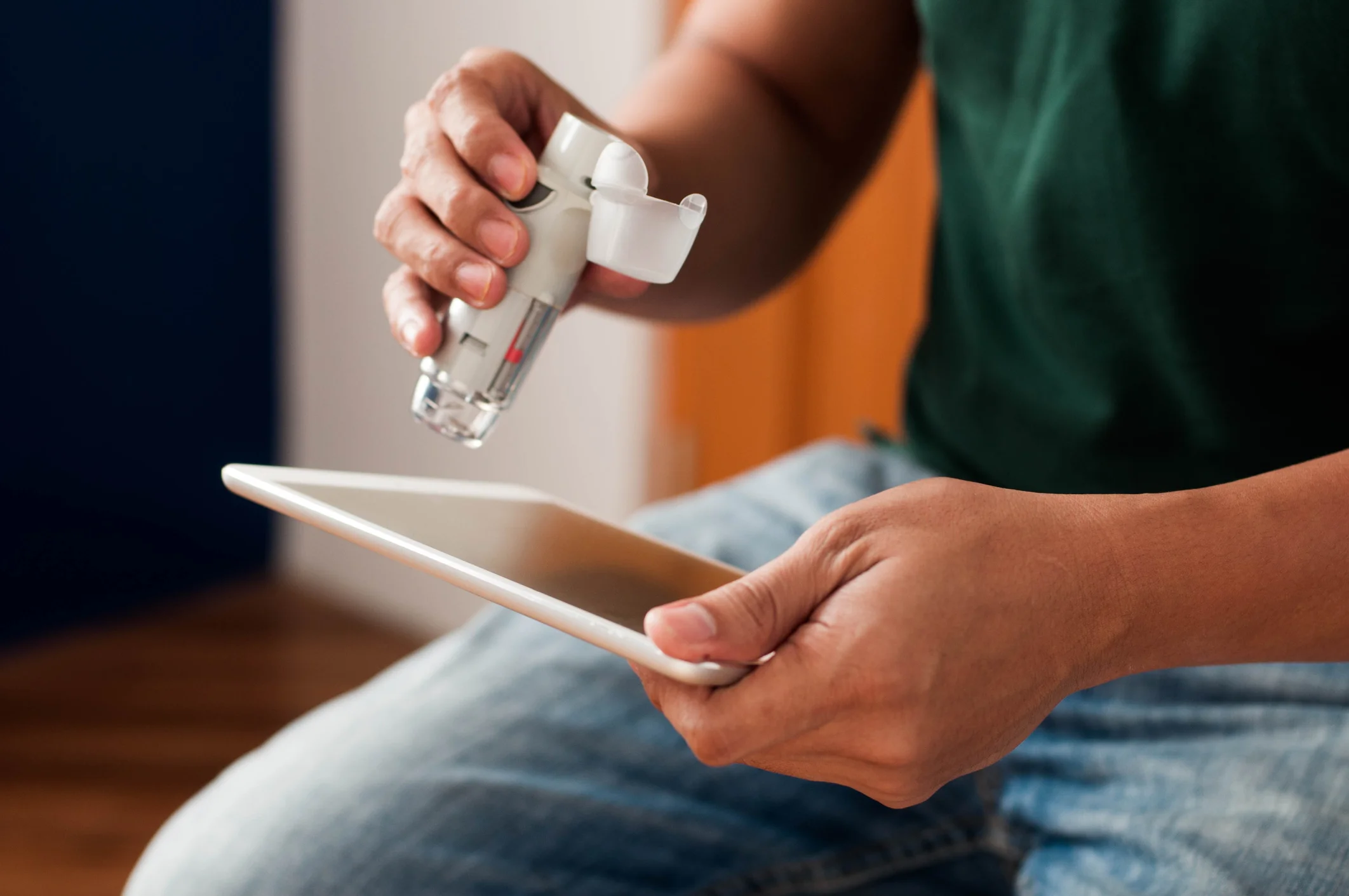
Connected Inhalers: The Future of Smart Respiratory Care
Introduction
The evolution of respiratory care has seen significant advancements with the introduction of connected inhalers, which leverage technology to enhance medication adherence, optimize treatment plans, and empower patients with real-time insights into their condition. Unlike traditional inhalers, which require manual tracking and self-regulation, connected inhalers provide a comprehensive solution for individuals managing asthma and COPD. By integrating smart sensors, digital connectivity, and AI-driven data analysis, these inhalers help patients and healthcare professionals better understand inhaler usage patterns, monitor environmental triggers, and prevent exacerbations before they become critical.
While the benefits of smart inhalers are clear, misconceptions regarding the sharing and misuse of inhalers persist, posing potential health risks. This article explores the dangers of inhaler sharing, the risks associated with using someone else’s medication, and how connected inhalers revolutionize asthma care by addressing these concerns while enhancing patient outcomes.
Can You Share Inhalers?
A common question among asthma patients is whether it is safe to share an inhaler with someone experiencing breathing difficulties. While the intention behind sharing may be well-meaning, the health risks and complications associated with inhaler sharing far outweigh any temporary relief it might provide.
Why Sharing Inhalers is Dangerous:
- Cross-Contamination Risks: Inhalers come into direct contact with a user’s mouth and respiratory tract, increasing the risk of transmitting bacteria, viruses, or fungal infections if shared.
- Medication Specificity: Different inhalers contain distinct formulations of bronchodilators, corticosteroids, or combination drugs that are prescribed based on an individual’s condition. Using the wrong medication can cause adverse effects or fail to relieve symptoms effectively.
- Incorrect Dosage Administration: The amount of medication required varies from patient to patient. A person using another’s inhaler may overdose or underdose, leading to ineffective treatment or worsening symptoms.
- Potential Allergic Reactions: Some individuals may be sensitive to specific ingredients in inhalers, which could trigger severe allergic responses, including anaphylaxis.
Connected inhalers, like Asthmasense, address this issue by ensuring that patients have access to their prescribed medication at all times through dose-tracking, refill alerts, and remote health monitoring. This reduces the need for borrowing or sharing inhalers in emergencies.
What Happens if You Use Someone Else’s Inhaler?
In urgent situations, individuals experiencing shortness of breath may use another person’s inhaler without considering the possible risks. However, misusing an inhaler not meant for your specific condition can have serious consequences.
Consequences of Using an Incorrect Inhaler:
- Unexpected Side Effects: Inhalers with corticosteroids can cause hoarseness, throat irritation, and fungal infections if used without proper rinsing or prescription.
- Increased Heart Rate and Anxiety: Some inhalers contain long-acting beta-agonists (LABAs), which, if used incorrectly, may induce palpitations, tremors, and heightened anxiety.
- Masking of Underlying Symptoms: Using another person’s inhaler may temporarily relieve symptoms, leading to delayed medical intervention and worsening of the underlying respiratory condition.
- Improper Technique and Misuse: Each inhaler has a specific method of administration, including timing, inhalation technique, and coordination requirements. Improper use can reduce medication efficiency and leave symptoms unmanaged.
To eliminate these risks, connected inhalers utilize real-time monitoring, medication adherence tracking, and AI-powered insights to ensure that users receive the correct medication at the right time and in the correct dosage.
What Are Connected Inhalers?
Connected inhalers are next-generation respiratory devices that integrate wireless technology, IoT sensors, and cloud-based data analysis to offer a more efficient approach to asthma and COPD management. Unlike traditional inhalers, these smart devices track medication usage, analyze patient behavior, and provide proactive recommendations to prevent asthma attacks and optimize treatment plans.
How Connected Inhalers Transform Respiratory Care:
- Automated Dose Tracking: Smart inhalers record every dose used, preventing accidental overuse or missed treatments.
- Environmental Trigger Detection: Advanced sensors monitor air quality, humidity, and allergen levels, alerting users when conditions may worsen symptoms.
- Personalized Medication Reminders: Digital connectivity ensures that users receive timely reminders to take their medication as prescribed.
- Cloud-Based Health Data Sharing: Real-time data is transmitted to healthcare providers, enabling remote monitoring, trend analysis, and treatment adjustments.
- AI-Powered Symptom Prediction: By analyzing patient data, AI algorithms predict potential asthma exacerbations, allowing preventive action before symptoms escalate.
The Asthmasense smart inhaler embodies all these features, offering a comprehensive, data-driven approach to respiratory care. With seamless integration between patient, device, and physician, connected inhalers redefine how asthma is managed, leading to fewer emergency visits, improved adherence, and better long-term health outcomes.
Conclusion
Connected inhalers are not just a technological upgrade but a fundamental shift in how respiratory diseases is managed. These devices provide real-time insights, predictive analytics, and seamless data sharing, ensuring that patients receive consistent and effective treatment without the risks associated with inhaler misuse or sharing.
Understanding why inhalers should never be shared and the dangers of using an unprescribed device is essential for promoting responsible asthma care. By equipping patients with Asthmasense and other connected inhalers, they can enjoy the benefits of personalized alerts, environmental monitoring, and AI-driven recommendations, eliminating reliance on shared medication and reducing the likelihood of critical asthma events.
As healthcare continues its digital transformation, connected inhalers are set to redefine patient engagement, treatment adherence, and proactive asthma management, ultimately creating a safer, smarter, and more effective future for respiratory health.



